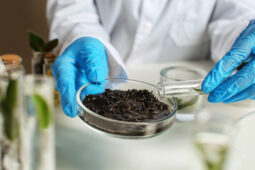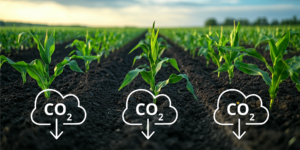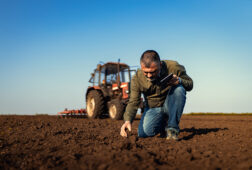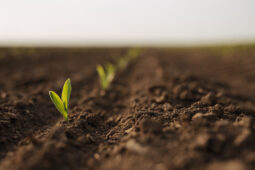Commercial Development Trials vs. On-Farm Demos
A robust research and development (R&D) program is essential for any ag biological product to gain long-term traction in the marketplace. Organizations must demonstrate proven efficacy with valid evidence to show farmers that their products can enhance crop production and provide a return on investment. At BiOWiSH Technologies, we use two main research methods in agronomic product testing – commercial development trials (CDTs) and on-farm demo trials. CDTs are traditional research trials conducted by third-party research organizations to provide replicated data, while on-farm demo trials are conducted on real production farms to enhance the quantitative data with more qualitative and regional relevancy. Often, too much emphasis is placed on only one of these methods, with companies or universities putting a lot of promotion behind their results. In reality, comparing the results across these different methods provides a more accurate assessment of the product and its expected real-life performance on farm.
Historically, agronomy product testing used trial designs that emphasized large numbers of replicates per trial to achieve a statistically significant result as judged by a P-value. This approach can be both expensive and limit the number of locations that a product can be tested in. In turn, this makes it harder to judge product performance across different markets.
Looking to corroborate research using both CDTs and on-farm trials, BiOWiSH Technologies implemented an innovative, international research testing strategy for our BiOWiSH® Fertilizer Enhancement utilizing a meta-analysis approach. This statistical technique integrates data from replicated, yet geographically representative studies to estimate the real impact of product performance across locations. It enables BiOWiSH to achieve broader, cumulative conclusions rather than only focusing on individual locations. Corroborating results from both CDTs and on-farm trials enables BiOWiSH Technologies to assess how product performance translates into real world farming with varying growing conditions and geographical challenges. Below is a deep dive into how BiOWiSH Technologies conducts its dual-methodology research to provide practical solutions to help farmers prosper.
Commercial Development Trials – The Foundation of BiOWiSH®
CDTs are foundational to the BiOWiSH R&D program. These research studies are conducted by either private or public (university) partners as small-plot replicated trials, which means that treatments are repeated multiple times at each location with random placement to account for field variability. Conducted internationally by third-party research organizations, they are replicated at least three to six times to enable a balance to understand variability both within and among locations.
Using top-of-the-line equipment, precise measurements, and the most accurate assessments available, these trials examine a variety of factors such as fertilizer type, application rates and timing, soil nutrient and health analysis, plant tissue analysis, plant vigor ratings, commodity value (i.e., protein or Brix), in addition to yield and economic results. We respect farmers, their local expertise, and their current practices. The BiOWiSH® Fertilizer Enhancement should complement a farm’s standard practices and enhance crop production, not dictate or replace what they’re already doing. Therefore, we allow our research partners to define the most common fertility program for the area for the selected crop and we use that as the Control treatment in our trials. This ensures that it is applicable for various farms and crops in specific countries and regions. For example, the standard fertility practice for rice in California is much different than the standard practice for rice in Vietnam. Testing of crop production input products accessible in any given region is essential to validate efficacy and compatibility. This also helps us better understand product efficacy across other regional factors and differences in environment, climate, soil type, and management practices.
The abundance of CDTs conducted provides deep insight into product performance to guide our commercialization focus. Meta-analysis of more than 200 independent, replicated field research trials, across various climates, soil types, management practices, and farm economics has revealed that the BiOWiSH® Fertilizer Enhancement has a 7.7% average yield uplift with an 86%-win rate over a standard regional fertility program. These striking performance results demonstrate a high level of proven product consistency, and we can confidently claim that BiOWiSH® provides optimized yield potential by improved nutrient uptake, which can enhance profitability for farmers.
Confirming CDT Results with Large Plot On-Farm Demo Trials
BiOWiSH Technologies takes its research program one step further and also conducts large on-farm demo trials. These aid in demonstrating product performance in real world scenarios while also validating the small plot, replicated CDTs. BiOWiSH Technologies relies on its distribution partners to facilitate the demo trial program with their trusted collaborator farmers – always ensuring the Control is the most common fertility program for the area. Often, the trials are conducted side-by-side in split sections on commercial farm fields across many acres. The principle of these trials is to evaluate performance under realistic growing conditions to provide results with local and regional relevance at farm scale.
The data is then compared to the CDTs using meta-analysis, which provides a statistical framework to compare average performance between the two trial types. This checks and balances approach to validate research and helps confirm that the CDTs accurately reflect real-world farming situations. When comparing the CDT and on-farm demo trials across all crops, the global win rate distributions for BiOWiSH® Enhanced Fertilizer are practically identical. These consistent results indicate the broad transferability of replicated research study results to on-farm performance across crops, climates, soil types, and management practices.
Below is a comparison chart of BiOWiSH CDT and demo trials revealing consistent yield uplift, confidence level, and win rate results: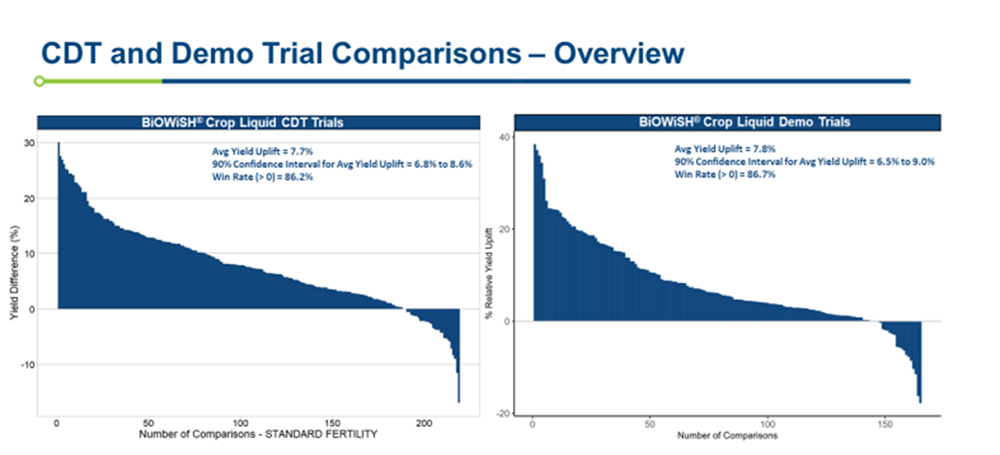
“One of the key benefits of using BiOWiSH® Fertilizer Enhancement is its consistency,” notes Graig Whitehead, ADM Director of Biologicals and New Technology. “Often times when farmers hear the word biologicals, they are a bit hesitant because some products make promises that aren’t delivered. BiOWiSH® has an 86% win-rate and is consistent. We’ve seen it with our own eyes during on-farm demo trials, and we’re very excited about the benefits it provides our customers.”
What Happens if Research Results Fall Outside of Expectations?
While BiOWiSH Technologies utilizes its body of research to identify market opportunities, comparing CDTs and on-farm demo trials also enables us to identify any anomalies quickly if results from a set of trials fall outside of historical trends. It helps guide R&D focus when underperforming environmental and management practice combinations are identified.
“If results for a crop or fertilizer combination underperform, an investigation is conducted to understand root causes. Since BiOWiSH Technologies cannot control all variables or how the product is used in every circumstance, we work with our partners to investigate the combinations of environmental variables and management practices to make solid recommendations,” states Bill Diederich, Chief Innovation Officer at BiOWiSH Technologies.
Bill goes on to say, “In rare circumstances when data reveals a disconnect, often due to a specific regional management practice, BiOWiSH will refine recommendations for the circumstance or adjust commercialization focus accordingly. We are always working to preserve the credibility of our partners, the biological arena, and the financial investment of farmers, and will therefore recognize when our product isn’t the best fit for a particular management practice.”
What Research Method is the Best?
So, which is a better approach to agronomy product research – CDTs or on-farm demos? The answer is not one or the other. Both are necessary, and must align, to demonstrate proven efficacy with valid evidence. Using a meta-analysis that combines all relevant data provides invaluable insight and the ability to identify and understand trends to aid in product commercialization.
At BiOWiSH Technologies, we pride ourselves on our innovative R&D program and we continue to invest in research around the globe. Our unique approach to comparing CDTs with on-farm demo trials confirms the effectiveness of BiOWiSH® Enhanced Fertilizer throughout various growing conditions and geographical challenges worldwide. Not only does this approach allow us to assess how product performance translates from development to real world farming, but it provides farmers with peace of mind and confidence in the consistent performance of BiOWiSH® Enhanced Fertilizer.

